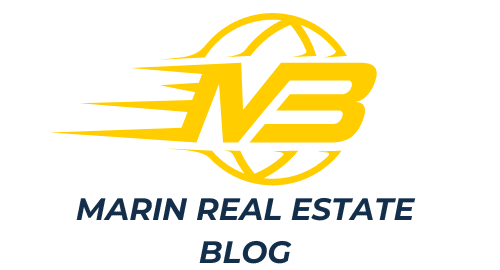How Do Nutritional Needs Change with Aging, and How Can They Be Best Met?

As you age, it is inevitable that your body and its requirements will change. The same applies to your nutritional intake. You may find that you can’t eat the same foods in the same amounts as you did in your 20s or even your 40s. Understanding the shifts in nutrition and health that occur with age can help you maintain a healthy diet, reduce the risk of diet-related diseases, and promote overall well-being.
The Impact of Age on Nutritional Needs
The aging process has a significant effect on your body’s nutritional needs. This section will explore some of the primary changes that occur as we age and explain why they happen.
Avez-vous vu cela : Can Biophilic Design in Workspaces Enhance Employee Well-being and Productivity?
With age, your metabolism slows down, which means you need fewer calories. However, your need for certain vitamins and minerals, such as calcium and vitamin D, may increase. A decrease in calorie needs coupled with increased nutrient needs presents a challenge for older adults.
Moreover, the ability to absorb certain nutrients, such as vitamin B12, can decrease with age. This is due to changes in the stomach lining that reduce the production of a substance needed for B12 absorption.
Cela peut vous intéresser : What Are the Benefits of Collaborative Healthcare Teams in Chronic Disease Management?
Furthermore, the sense of thirst can diminish in older adults, leading to a higher risk of dehydration. Additionally, changes in taste and smell can affect appetite and enjoyment of food, potentially impacting nutritional intake.
Adjusting Your Diet to Meet Changing Nutritional Needs
The key to meeting your changing nutritional needs as you age lies in eating a balanced, nutrient-dense diet. Here’s how to adjust your diet for optimal health and nutrition.
Firstly, decrease your calorie intake while increasing the nutritional value of the foods you eat. For example, swap out refined grains for whole grains and opt for lean proteins instead of fatty meats. You can also increase your intake of fruits and vegetables, which are high in vitamins, minerals, and fiber.
Also, prioritize foods rich in calcium and vitamin D, like dairy products and fortified foods, to support bone health. And to help your body absorb vitamin B12, consider fortified foods or supplements.
Finally, remember to drink plenty of fluids throughout the day to avoid dehydration. If you find plain water unappealing, try flavored water, herbal teas, or even fruits with high water content.
The Role of Protein in the Aging Diet
Protein is essential in the diet of older adults. It helps maintain muscle mass, supports immune function, and promotes wound healing. But as you age, you may need more protein.
Research has shown that many older adults do not get enough protein in their diets. This can lead to muscle loss, weakened immune function, and a slower recovery from illnesses or injuries. To avoid this, aim to include a source of protein at every meal.
Also, consider choosing high-quality protein sources, like lean meats, fish, eggs, beans, and dairy products. And remember that plant-based proteins, such as beans and lentils, can be just as beneficial as animal-based proteins.
Preventing Disease and Maintaining Health Through Nutrition
With the right nutritional strategy, you can help reduce the risk of certain diseases common in older adults, such as heart disease and osteoporosis.
Eating a diet rich in fruits, vegetables, lean proteins, and whole grains can help protect against heart disease. These foods are low in saturated fat and cholesterol and high in fiber, which can help manage blood pressure and cholesterol levels.
To support bone health and prevent osteoporosis, prioritize foods high in calcium and vitamin D. Regular physical activity can also help to maintain bone strength.
Moreover, maintaining a healthy weight is crucial for overall health and disease prevention. This can be achieved by balancing the calories you consume with the calories you burn through physical activity.
The Importance of a Personalized Approach to Nutrition
Finally, remember that everyone’s nutritional needs are unique, influenced by factors such as gender, health status, and activity level. Therefore, it is essential to adopt a personalized approach to nutrition as you age.
For instance, people with certain health conditions may need to follow specific dietary guidelines. Also, some older adults may need to adjust their diet to manage medication side effects or to treat nutrient deficiencies.
Don’t hesitate to seek professional guidance. A dietitian or a healthcare provider can help you develop an individualized eating plan that meets your nutritional needs and suits your lifestyle and food preferences.
In summary, aging brings about changes in nutritional needs. However, with knowledge, planning, and perhaps some professional guidance, you can adjust your diet to meet these needs and maintain your health as you age. Remember, it’s never too late to make positive changes to your eating habits.
Nutritional Supplements for Aging Adults
In addition to a balanced diet, it may become necessary to include dietary supplements to your lifestyle as you age. This is especially crucial if your diet lacks certain nutrients or if you have a condition that reduces your body’s ability to absorb nutrients from food.
One of the most common dietary supplements recommended for older adults is Vitamin D. As we age, our skin’s ability to produce Vitamin D diminishes, and our need for it increases. Vitamin D is necessary for calcium absorption and bone health. A deficiency can lead to osteoporosis, so it is often recommended to take it as a supplement, especially if you have limited exposure to sunlight.
Similarly, Calcium is also essential for bone health, and its need increases with age. Older adults are often encouraged to increase their calcium intake through food or supplements to prevent osteoporosis.
Another essential supplement is Vitamin B12. Older adults often have difficulty absorbing this vitamin from food due to changes in the stomach lining. Therefore, it might be beneficial to take it as a supplement.
Omega-3 fatty acids are beneficial for heart health. As heart disease is common in older adults, it may be worth considering a supplement if your diet lacks fatty fish.
However, it is important to remember that supplements should not replace a balanced diet. They should only be used to complement your diet if necessary. Also, always consult your healthcare provider before starting any supplement regimen to avoid potential interactions with medications or conditions.
The Role of Regular Exercise in Meeting Nutritional Needs
Regular exercise plays a crucial role in meeting nutritional needs and maintaining overall health as we age. It boosts metabolism, improves appetite, and helps maintain muscle mass and strength.
Firstly, regular physical activity helps to maintain a healthy metabolism. As we age, our metabolism naturally slows down, leading to a decline in calorie needs. However, regular exercise can help to counteract this decline, allowing us to maintain a healthy weight and prevent obesity.
Secondly, exercise can stimulate appetite. Some older adults may experience a decrease in appetite due to changes in taste and smell or due to certain medications. Regular physical activity can help to stimulate appetite and promote a healthy nutritional intake.
Finally, exercise is essential for maintaining muscle mass and strength. As we age, we naturally lose muscle mass. Regular resistance and strength training exercises can help to slow down this loss and maintain strength and mobility.
In conclusion, regular physical activity is a vital component of meeting nutritional needs and maintaining health as we age. Just like our dietary needs, our exercise needs may change as we age. It’s important to adapt and adjust our exercise routines to suit our capabilities and health status. Always consult with a healthcare provider before starting a new exercise regimen.
Conclusion
Aging brings about significant changes in our nutritional needs. It is important to understand these changes and adjust our diet and lifestyle accordingly. While a balanced, nutrient-dense diet forms the backbone of meeting nutritional needs as we age, other factors like exercise, dietary supplements, and personalized nutrition approaches are equally important.
Remember, each person’s nutritional requirements are unique and influenced by various factors. Therefore, adopting a personalized approach to nutrition is essential. This might mean seeking professional guidance from a dietitian or a healthcare provider to develop a tailored eating and exercise plan.
In summary, aging is a natural process that we all must go through. But with the right knowledge and strategies, we can meet our changing nutritional needs and maintain our health and vigor even as we age. After all, it’s never too late to start making positive changes to our eating habits and lifestyle.
